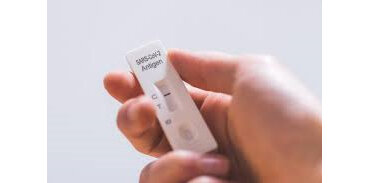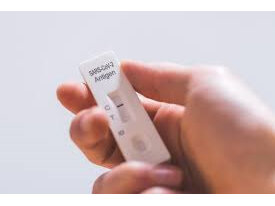Rapid antigen tests, often abbreviated ‘RAT’, are generally taken with a front of nose swab and detect the presence of specific proteins on the outer portion of the virus, such as the spike protein.
This is different from the RT-PCR (Reverse Transcription Polymerase Chain Reaction) test currently widely used in New Zealand which detects genetic material called RNA. Samples used for RT-PCR tests are collected with nasopharyngeal swabs, a combination oral and nasal swab (oropharyngeal anterior nares), or saliva.
RATs require a higher quantity of the virus to be present in the sample than other COVID‑19 testing methods. As a result, RATs are less sensitive at detecting cases, especially in asymptomatic people or people who are early in their infectious period. A positive result in any RAT requires a confirmation test by RT-PCR swab undertaken by a healthcare professional.
The advantage of RATs is that they give a result quickly (often in less than 15 minutes), which assists with rapid risk assessment and reduces the amount of time a positive individual is active in the community. They are also useful for screening, which is a one-off test such as is required for unvaccinated people aged over 12 years to leave Auckland from 15 December 2021 to 17 January 2022. RATs can be conducted in a laboratory, a health setting, or in the community e.g., at home.
A point of care RAT is one that is performed at or near the place where a specimen is collected and interpreted, ideally under the supervision of a healthcare professional, for example at urgent care clinics, pharmacies and aged residential care facilities.





